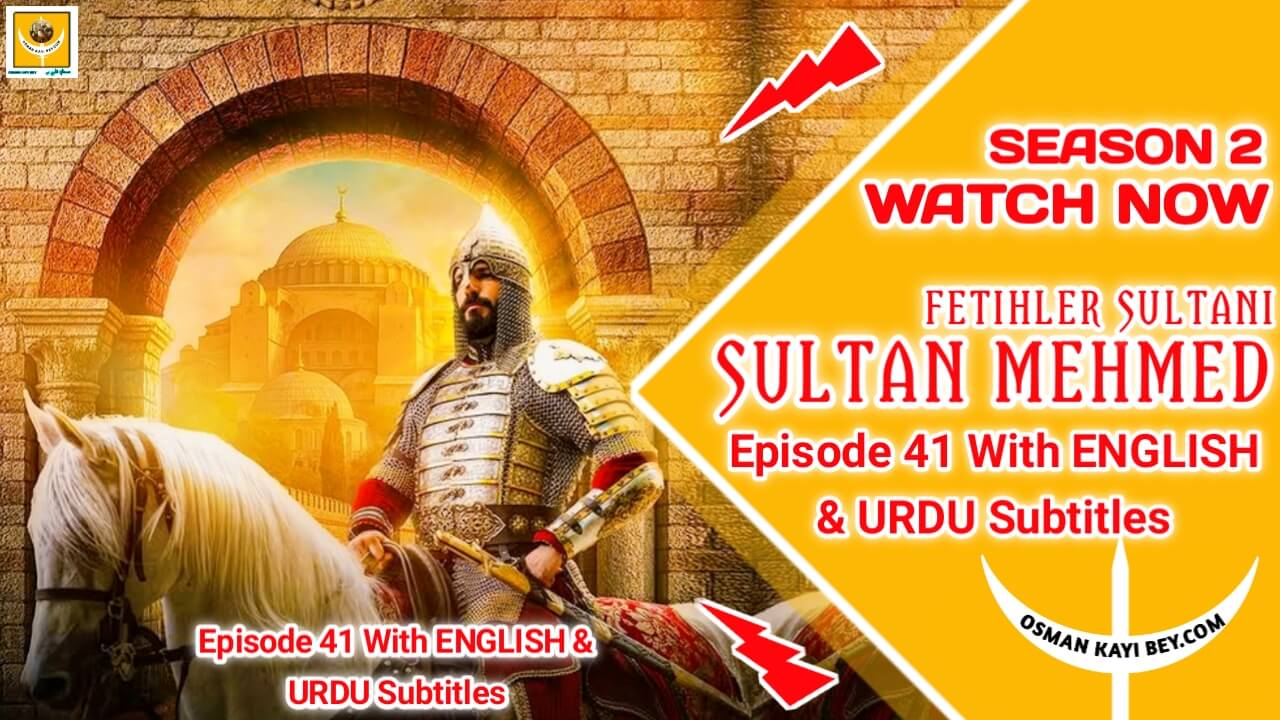Mehmed Fetihler Sultani Season 2 Episode 41
Between Sword and Soul: The Final Hours Before the Fall of Constantinople
The air was thick with tension, the kind only found before history takes a deep breath and changes forever. As the Ottomans stood at the threshold of fulfilling one of the most powerful prophecies in Islamic history, something unexpected unfolded. Victory seemed close enough to touch — yet unseen hands of fate pulled the reins, slowing the charge of destiny. This was not just war. It was a test of character, vision, and divine will.
Mehmed Fetihler Sultani Season 2 Episode 41
The Calm Before a Different Kind of Storm
While military preparations were flawless and every tactic had been carefully laid out, Sultan Mehmed found himself facing a storm that no sword could silence. It was not from the Byzantines. It came from within. Aksemseddin, the empire’s spiritual lighthouse, brought forth a demand — a call for restraint when everything screamed for action. The silence following that request was louder than war drums. In that moment, the battlefield transformed into a spiritual arena.
The Emperor’s Game of Psychological Warfare
Far from surrender, Emperor Konstantinos launched his most dangerous attacks not with armies but with fear. Psychological warfare became his weapon. Rumors were spread to lower Ottoman morale. Captured messengers were sent back with terrifying tales. Night raids and false signals wore down the spirit of even the strongest fighters. This wasn’t just about defending walls; it was about breaking minds. And for a time, it seemed the city’s defenses were more mental than stone.
Table: Types of Warfare During the Siege
| Type of Warfare | Used By | Effect on Opponent |
|---|---|---|
| Traditional Siege Tactics | Ottomans | Physical damage to Constantinople’s walls |
| Spiritual Pressure | Aksemseddin (Ottomans) | Slowed down military aggression |
| Psychological Warfare | Byzantines | Undermined Ottoman morale |
| Covert Missions | Çandarlı | Created uncertainty within enemy lines |
When Time Becomes an Enemy
The longer the Ottomans waited, the more the pressure mounted. Supplies ran thinner, soldiers questioned delays, and every passing hour gave the Byzantines time to strengthen their defenses. Time, once a neutral observer, became a threat. Yet Sultan Mehmed stood firm. Between strategic insight and spiritual trust, he knew the right moment would reveal itself — and when it did, no wall would hold them back.
A Leader Who Listens: The Measure of Sultan Mehmed
What sets great leaders apart is not their power but their ability to listen — even when every instinct says otherwise. Sultan Mehmed’s decision to honor Aksemseddin’s request revealed his maturity and depth. Rather than rush into battle to satisfy ambition, he chose to align his conquest with divine timing. This balance between sword and soul, strategy and spirituality, gave his army strength far beyond numbers.
List: Emotional Triggers Fueling the Ottoman Army
- Desire to fulfill the prophecy of Constantinople’s fall
- Revenge for fallen brothers-in-arms
- Sultan Mehmed’s passionate battlefield speeches
- Spiritual belief in the righteousness of their mission
- Psychological endurance against Byzantine manipulation
The Shadow of an Unknown Assassin
While armies clashed and empires stood on the brink, a quieter but deadlier subplot unfolded. Çandarlı, the Sultan’s trusted man, was tasked with a mission involving an unnamed enemy whose presence was as silent as it was deadly. There was no open battlefield here — only shadows, silence, and the suffocating breath of a killer who walked behind him. Çandarlı’s survival wasn’t just personal; it was strategic. If he failed, an entire front of the war could collapse.
A Siege That Became a Symbol
This was no ordinary siege. It came to represent more than just a territorial battle — it was a symbol of ending an era and beginning a new one. The fall of Constantinople meant the collapse of the Byzantine Empire and the rise of Ottoman dominance. But more than politics or land, it marked the victory of belief over resistance, of vision over stagnation, and of patience over provocation.
Key Takeaways
- The siege wasn’t just military — it was psychological, spiritual, and symbolic.
- Sultan Mehmed’s greatest strength lay in restraint, not force.
- Aksemseddin’s request was divine in timing and purpose.
- Emperor Konstantinos used fear as his primary weapon.
- Çandarlı’s secret mission added a layer of espionage and suspense to the final battle.
FAQ – Deeper Insights into the Siege
Because it shifted the momentum from action to reflection, forcing Mehmed to choose faith over force, and aligning military action with spiritual timing.
It delayed confidence, created doubt, and tested loyalty — showing that wars are won not just on the field but in the mind.
To outsiders, maybe. But internally, it was seen as divine wisdom — the calm before the rightful strike.
It ended a millennium-old empire, changed the religious-political map, and birthed one of history’s greatest Islamic empires.
Conclusion
In the heart of battle, it is not always swords that decide victory — sometimes, it’s the soul. Sultan Mehmed’s approach to the conquest of Constantinople teaches us that true leadership is knowing when to fight, when to pause, and whom to listen to. The siege wasn’t just about walls and cannons; it was about destiny. And in the final hours, as war drums beat alongside whispered prayers, history tilted — forever.

